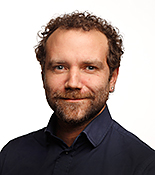
Niccolò Banterle
EMBL Heidelberg
Germany
EMBO Practical Course
In the past decade, cell biology has undergone transformational changes resulting from improvements in single molecule imaging technologies and in-situ structural biology. At the same time, the emergence of deep learning approaches that have revolutionised the field of image analysis together with techniques that complement imaging approaches to e.g. dissect the mechanical properties of cells have provided a wealth of quantitative high-dimensional data for cell biologists. The wealth of data available to cell biologists also comes with new challenges in data handling, data analysis, and data interpretation. To allow researchers to design appropriate experiments and translate the data into meaningful knowledge requires insight into which techniques are best suited to address a specific question, which techniques can or must be combined, and how the output is best analysed and interpreted. The ‘Current methods in cell biology’ course aims to expose researchers with different backgrounds to the diverse cutting-edge methods developed for cell biology to showcase how integrated approaches can address the current “big” questions in cell biology. By attracting a diverse group of participants and exposing them to the recent advances in cell biology, the course will equip the participants with the tools to further advance the field.
The practical sessions will take place in parallel and groups will rotate . Participants must select 3 topics out of 11 for practicals 1 – 3 and 2 topics out of 3 for practicals 4 – 5.
The course will be targeted primarily for postdocs and advanced graduate students who have developed an interest in cell biology. We aim to attract a diverse group of scientists who want to expand their expertise by acquiring cutting-edge quantitative cell biological, biophysical, and computational methods to address current problems in cell biology. We aim to balance the number of participants with a background in biology and participants coming from other disciplines. A key criterion for selection is the potential benefit of adding novel cell biological methods to the participant’s own research plans.
Preference will be given to applicants where there is little or no possibility that the applicant can acquire these technologies at their home institution.
“This course has changed my perspective in many aspects of cell biology, and allowed me to rethink how to perform crucial experiments. The interaction with other participants and the speakers has been without a doubt the best, providing an excellent platform for networking during the 10 days of the course. Highly recommended in the next editions!” – Anchel de Jaime Soguero, COS Heidelberg, Germany
“A wonderful way to learn about and be inspired by new advances in cell biology research. The enthusiasm of those teaching made the course stand out as a unique opportunity.” – Victoria Hart, University of Sheffield, UK.
This course is kindly supported by the Cell Biology and Biophysics Unit of EMBL.
Please see EMBL’s COVID-19 safety recommendations for testing and other requirements to attend this on-site course.
This event has been granted the following EMBO sustainability badge:


EMBL Heidelberg
Germany
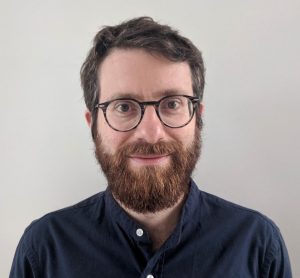
Utrecht University
The Netherlands
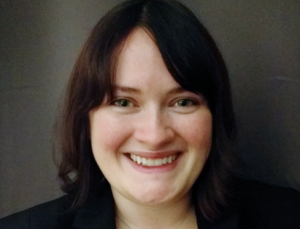
Broad Institute
USA
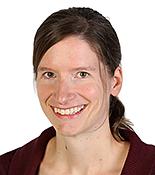
EMBL Heidelberg
Germany
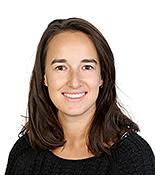
EMBL Heidelberg
Germany
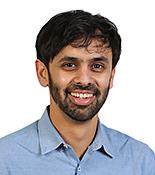
EMBL Heidelberg
Germany
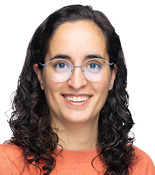
EMBL Heidelberg
Germany
EMBL Heidelberg
Germany
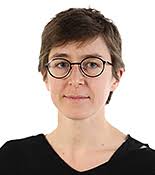
EMBL Heidelberg
Germany

Goda Lab, Tokyo
Japan
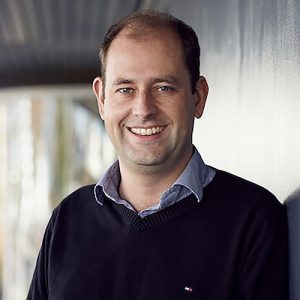
Max Planck Institute of Biochemistry
Germany
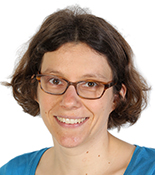
EMBL Heildeberg
Germany
EMBL Heidelberg
Germany
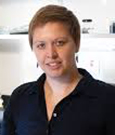
MRC Laboratory of Molecular Biology
United Kingdom
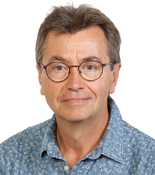
EMBL Heidelberg
Germany

EMBL Heidelberg
Germany
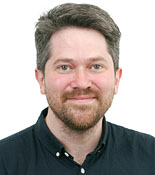
EMBL Heidelberg
Germany
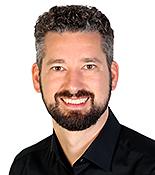
Max Perutz labs
Austria
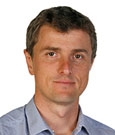
EMBL Heidelberg
Germany

EMBL Heidelberg
Germany
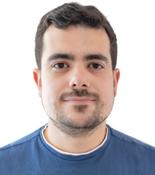
EMBL Barcelona
Spain
(Virtual speaker)
| Lab | People |
| Banterle Group | Enrico Salvatore Atorino – EMBL Heidelberg, Germany Anna Lippert – EMBL Heidelberg, Germany |
| Cuylen Group | Banafsheh Golchoubian – EMBL Heidelberg, Germany Yuki Hayashi – EMBL Heidelberg, Germany |
| Dey Group | Margarida Araujo – EMBL Heidelberg, Germany Felix Mikus – EMBL Heidelberg, Germany Hiral Shah – EMBL Heidelberg, Germany |
| Diz-Muñoz Group | Srishti Dar – EMBL Heidelberg, Germany Linda Decker – EMBL Heidelberg, Germany Filipe Nunes Vicente – EMBL Heidelberg, Germany Eva Pillai – EMBL Heidelberg, Germany Ruben Tesoro Moreno – EMBL Heidelberg, Germany |
| Ellenberg Group | Hairuo Dang – EMBL Heidelberg, Germany Marina Makharova – EMBL Heidelberg, Germany Koki Watanabe – EMBL Heidelberg, Germany |
| Erzberger Group | Roman Belousov – EMBL Heidelberg, Germany Jenna Elliott – EMBL Heidelberg, Germany |
| Köhler Group | Cristina Pineiro Lopez – EMBL Heidelberg, Germany |
| Kreshuk Group | Benedikt Best – EMBL Heidelberg, Germany Dominik Kutra – EMBL Heidelberg, Germany |
| Pepperkok Team | George Galea – EMBL Heidelberg, Germany Muzamil Majid Khan – EMBL Heidelberg, Germany |
| Prevedel Group | Ling Wang – EMBL Heidelberg, Germany |
| Quail Group | Shilpi Dhar – EMBL Heidelberg, Germany Nethaji Kuruppu – EMBL Heidelberg, Germany Natalia Lopez – EMBL Heidelberg, Germany Juliette Sebellin – EMBL Heidelberg, Germany |
| Schwab Team | Chandni Bhickta – EMBL Heidelberg, Germany Inés Romero Brey – EMBL Heidelberg, Germany |
| Watt Group | Adil Boolani – EMBL Heidelberg, Germany Mirsana Ebrahim – EMBL Heidelberg, Germany Purna Gadre – EMBL Heidelberg, Germany Pavlina Markova – EMBL Heidelberg, Germany |
| Zimmermann Team | Dietrich Walsh – EMBL Heidelberg, Germany |

EMBL Heidelberg
Germany

Broad Institute
USA

EMBL Heidelberg
Germany
Course and Conference Officer
EMBL Heidelberg
Germany

Scientific Training Manager
EMBL Heidelberg
Germany
Are you on social media? Post using #EMBOCellBiology and don’t forget to tag @EMBLEvents.
| Time (Europe/Berlin) | Session | Location |
|---|---|---|
| 15:30 – 16:00 | Registration and Welcome | ISG Hotel |
| 16:00 – 16:30 | Welcome, Safety introduction | ISG Hotel |
| 16:30 – 18:00 | Flash Talks | ISG Hotel |
| 18:00 – 18:45 | Challenges and Expectations | ISG Hotel |
| 18:45 – 19:00 | Break | ISG Hotel |
| 19:00 – 20:00 | Dinner | ISG Hotel |
| 20:00 – 22:00 | Networking with Drinks | ISG Hotel |
| Time (Europe/Berlin) | Session | Location |
|---|---|---|
| 08:40 – 08:55 | Bus from ISG hotel to EMBL Bus Stop | |
| 08:55 – 09:00 | Overview of the day | Seminar room 202 |
| 09:00 – 09:45 | Lecture: Microscopy basics Robert Prevedel – EMBL Heidelberg, Germany | Seminar room 202 |
| 09:45 – 10:15 | Break | |
| 10:15 – 11:00 | Lecture: Single molecule localization microscopy and Minflux Jonas Ries – Max Perutz labs, Austria | Seminar room 202 |
| 11:00 – 14:00 | Poster session 1 (odd numbers) Lunch and open discussion | Operon Foyer |
| 14:00 – 14:30 | Responsible Conduct of Research – Practical 1 Conducted by the respective trainers | |
| 14:30 – 19:00 | Practical 1 (parallel sessions) 1. High speed AFM 2. Using Expansion Microscopy in cell biology 3. Dissecting the role of cell geometry in surface mechanics by combining micropatterning and AFM indentation 4. Live-imaging of mouse pre-implantation embryos and bio-image analysis 5. Simultaneous labeling of DNA, RNA, and proteins preserving chromosome morphology. Is that possible? 6. Build your fluorescence microscope (DIY) 7. High-Content Screening: Investigating DNA damage response and inflammation interplay 8. Random walks in Biology 9. Characterizing stem cells from human epidermis 10. Volume CLEM unravels the sub-cellular architecture of selected marine unicellular plankton 11. Fluorescence Lifetime Imaging Microscopy (FLIM) applications | |
| 19:00 – 20:15 | Dinner | EMBL Canteen |
| 20:15 | Return to hotel | EMBL Bus Stop |
| Time (Europe/Berlin) | Session | Location |
|---|---|---|
| 08:40 – 08:55 | Bus from ISG hotel to EMBL Bus Stop | |
| 08:55 – 09:00 | Overview of the day | Seminar room 202 |
| 09:00 – 09:45 | Lecture: Biophysics of molecular sociology Thomas Quail – EMBL Heidelberg, Germany | Seminar room 202 |
| 09:45 – 10:15 | Break | |
| 10:15 – 11:00 | Lecture: Heterogeneity in human skin cells Fiona Watt – EMBL Heidelberg, Germany | Seminar room 202 |
| 11:00 – 14:00 | Poster session II (even numbers) Lunch and open discussion | Operon Foyer |
| 14:00 – 19:00 | Practical I (continue) (parallel sessions) 1. High speed AFM 2. Using Expansion Microscopy in cell biology 3. Dissecting the role of cell geometry in surface mechanics by combining micropatterning and AFM indentation 4. Live-imaging of mouse pre-implantation embryos and bio-image analysis 5. Simultaneous labeling of DNA, RNA, and proteins preserving chromosome morphology. Is that possible? 6. Build your fluorescence microscope (DIY) 7. High-Content Screening: Investigating DNA damage response and inflammation interplay 8. Random walks in Biology 9. Characterizing stem cells from human epidermis 10. Volume CLEM unravels the sub-cellular architecture of selected marine unicellular plankton 11. Fluorescence Lifetime Imaging Microscopy (FLIM) applications | |
| 19:00 – 20:30 | Tapas dinner | ATC Rooftop Lounge |
| 20:30 | Return to hotel | EMBL Bus Stop |
| Time (Europe/Berlin) | Session | Location |
|---|---|---|
| 08:40 – 08:55 | Bus from ISG hotel to EMBL bus stop | |
| 08:55 – 09:00 | Overview of the day | Seminar room 202 |
| 09:00 – 09:45 | Lecture: Super-resolution microscopy introduction Timo Zimmermann – EMBL Heidelberg, Germany | Seminar room 202 |
| 09:45 – 10:10 | Break | |
| 10:10 – 10:55 | Lecture: Emerging model systems for cell biology Gautam Dey – EMBL Heidelberg, Germany | Seminar room 202 |
| 10:55 – 11:20 | Break | |
| 11:20 – 12:05 | Lecture: Cell mechanics Alba Diz-Muñoz – EMBL Heidelberg, Germany | Seminar room 202 |
| 12:05 – 12:55 | Lunch and Networking | EMBL canteen |
| 12:55 – 13:15 | Responsible Conduct of Research – Practical 2 Conducted by the respective trainers | |
| 13:15 – 17:45 | Practical 2 (parallel sessions) 1. High speed AFM 2. Using Expansion Microscopy in cell biology 3. Dissecting the role of cell geometry in surface mechanics by combining micropatterning and AFM indentation 4. Live-imaging of mouse pre-implantation embryos and bio-image analysis 5. Simultaneous labeling of DNA, RNA, and proteins preserving chromosome morphology. Is that possible? 6. Build your fluorescence microscope (DIY) 7. High-Content Screening: Investigating DNA damage response and inflammation interplay 8. Random walks in Biology 9. Characterizing stem cells from human epidermis 10. Volume CLEM unravels the sub-cellular architecture of selected marine unicellular plankton 11. Fluorescence Lifetime Imaging Microscopy (FLIM) applications | |
| 17:45 – 18:45 | Dinner | EMBL canteen |
| 18:45 | Walk to hotel |
| Time (Europe/Berlin) | Session | Location |
|---|---|---|
| 08:40 – 08:55 | Bus from ISG hotel to EMBL Bus Stop | |
| 08:55 – 09:00 | Overview of the day | Seminar room 202 |
| 09:00 – 10:00 | Seminar: DNA PAINT Ralf Jungmann – Max Planck Institute of Biochemistry, Germany | Small Operon |
| 10:00 – 10:30 | Meet the Speaker | Small Operon |
| 10:30 – 11:00 | Break | |
| 11:0 0- 11:45 | Lecture: Phase separation in cell biology Sara Cuylen-Häring – EMBL Heidelberg, Germany | Seminar room 202 |
| 11:45 – 12:45 | Career lunch | EMBL canteen |
| 12:45 – 13:15 | Group Photo | |
| 13:15 – 14:15 | Seminar: Imaging the mammalian embryo with light-sheet microscopy – The director’s cut Kate McDole – MRC Laboratory of Molecular Biology, United Kingdom | Seminar room 202 |
| 14:15 – 19:15 | Practical 2 (continue) (parallel sessions) 1. High speed AFM 2. Using Expansion Microscopy in cell biology 3. Dissecting the role of cell geometry in surface mechanics by combining micropatterning and AFM indentation 4. Live-imaging of mouse pre-implantation embryos and bio-image analysis 5. Simultaneous labeling of DNA, RNA, and proteins preserving chromosome morphology. Is that possible? 6. Build your fluorescence microscope (DIY) 7. High-Content Screening: Investigating DNA damage response and inflammation interplay 8. Random walks in Biology 9. Characterizing stem cells from human epidermis 10. Volume CLEM unravels the sub-cellular architecture of selected marine unicellular plankton 11. Fluorescence Lifetime Imaging Microscopy (FLIM) applications | |
| 19:15 – 20:30 | Pizza Dinner | ATC Rooftop Lounge |
| 20:30 | Return to hotel | EMBL Bus Stop |
| Time (Europe/Berlin) | Session | Location |
|---|---|---|
| 08:40 – 08:55 | Bus from ISG hotel to EMBL Bus Stop | |
| 08:55 – 09:00 | Overview of the day | Seminar room 202 |
| 09:00 – 09:45 | Lecture: Theory Anna Erzberger – EMBL Heidelberg, Germany | Seminar room 202 |
| 09:45 – 10:15 | Break | |
| 10:15 – 11:15 | Seminar: Simulations Florian Berger – Utrecht University, The Netherlands | Small Operon |
| 11:15 – 11:45 | Meet the Speaker | Seminar room 202 |
| 11:45 – 12:45 | Lunch | EMBL canteen |
| 12:45 – 13:30 | Seminar: Computational modelling Alejandro Torres Sánchez – EMBL Barcelona, Spain (virtual speaker) | Small Operon |
| 13:30 – 14:15 | Responsible Conduct of Research – Practical 3 Conducted by the respective trainers | Seminar room 202 |
| 14:15 – 18:45 | Practical 3 (parallel sessions) 1. High speed AFM 2. Using Expansion Microscopy in cell biology 3. Dissecting the role of cell geometry in surface mechanics by combining micropatterning and AFM indentation 4. Live-imaging of mouse pre-implantation embryos and bio-image analysis 5. Simultaneous labeling of DNA, RNA, and proteins preserving chromosome morphology. Is that possible? 6. Build your fluorescence microscope (DIY) 7. High-Content Screening: Investigating DNA damage response and inflammation interplay 8. Random walks in Biology 9. Characterizing stem cells from human epidermis 10. Volume CLEM unravels the sub-cellular architecture of selected marine unicellular plankton 11. Fluorescence Lifetime Imaging Microscopy (FLIM) applications | |
| 18:45 – 19:00 | Return to hotel | EMBL Bus Stop |
| 19:00 – 21:00 | Dinner and drinks at ISG Hotel | ISG Hotel |
| Time (Europe/Berlin) | Session | Location |
|---|---|---|
| 08:40 – 08:55 | Bus from ISG hotel to EMBL Bus Stop | |
| 08:55 – 09:00 | Overview of the day | Seminar room 202 |
| 09:00 – 09:45 | Lecture: Small-molecule fluorophores for biological imaging Claire Deo – EMBL Heidelberg, Germany | Seminar room 202 |
| 09:45 – 10:00 | Break | |
| 10:00 – 10:45 | Lecture: Expansion microscopy Niccolò Banterle – EMBL Heidelberg, Germany | Seminar room 202 |
| 10:45 – 11:00 | Break | |
| 11:00 – 11:45 | Lecture: Meiosis Simone Köhler – EMBL Heidelberg, Germany | Seminar room 202 |
| 11:45 – 12:45 | Lunch | EMBL canteen |
| 12:45 – 18:00 | Practical 3 (continue) (parallel sessions) 1. High speed AFM 2. Using Expansion Microscopy in cell biology 3. Dissecting the role of cell geometry in surface mechanics by combining micropatterning and AFM indentation 4. Live-imaging of mouse pre-implantation embryos and bio-image analysis 5. Simultaneous labeling of DNA, RNA, and proteins preserving chromosome morphology. Is that possible? 6. Build your fluorescence microscope (DIY) 7. High-Content Screening: Investigating DNA damage response and inflammation interplay 8. Random walks in Biology 9. Characterizing stem cells from human epidermis 10. Volume CLEM unravels the sub-cellular architecture of selected marine unicellular plankton 11. Fluorescence Lifetime Imaging Microscopy (FLIM) applications | |
| 18:00 – 18:30 | Bus to Downtown | EMBL Bus Stop |
| 18:30 – 22:30 | Course dinner and Downtown Heidelberg visit | Flammkuchenhof Heidelberg |
Free day
| Time (Europe/Berlin) | Session | Location |
|---|---|---|
| 08:40 – 08:55 | Bus from ISG hotel to EMBL Bus Stop | |
| 08:55 – 09:00 | Overview of the day | Seminar room 202 |
| 09:00 – 09:45 | Lecture: Machine learning for image analysis Anna Kreshuk – EMBL Heidelberg, Germany | Seminar room 202 |
| 09:45 – 10:15 | Break | |
| 10:15 – 11:15 | Seminar: Cell Profiler Beth Cimini – Broad Institute of MIT and Harvard, USA | Small Operon |
| 11:15 – 11:45 | Meet the speaker | Seminar room 202 |
| 11:45 – 12:45 | Lunch | EMBL canteen |
| 12:45 – 13:30 | Lecture: Correlative light & electron microscopy Yannick Schwab – EMBL Heidelberg, Germany | Seminar room 202 |
| 13:30 – 14:15 | Responsible Conduct of Research – Practical 4: Image analysis and Theory Conducted by the respective trainers | |
| 14:15 – 18:45 | Practical 4: Image analysis and Theory (parallel sessions) 1. Cell Profiler 2. Image Processing & Analysis with ilastik 3. Mathematical modeling using random walks | Seminar room 202, CTL, Flexlab |
| 18:45 – 20:00 | Dinner | EMBL canteen |
| 20:00 | Return to hotel | EMBL Bus Stop |
| Time (Europe/Berlin) | Session | Session |
|---|---|---|
| 08:40 – 08:55 | Bus from ISG hotel to EMBL Bus Stop | |
| 08:55 – 09:00 | Overview of the day | Seminar room 202 |
| 09:00 – 10:00 | Seminar: Cell sorting Keisuke Goda – Goda Lab, Tokyo, Japan | Small Operon |
| 10:00 – 11:00 | Meet the speaker | Seminar room 202 |
| 11:00 – 11:30 | Break | Seminar room |
| 11:30 – 12:15 | Lecture: Microscopy applied I Jan Ellenberg – EMBL Heidelberg, Germany | Seminar room 202 |
| 12:15 – 13:15 | Lunch | EMBL canteen |
| 13:15 – 14:00 | Lecture: TBC Rainer Pepperkok – EMBL Heidelberg, Germany | Seminar room 202 |
| 14:00 – 14:45 | Responsible Conduct of Research – Practical 5: Image analysis and Theory Conducted by the respective trainers | |
| 14:45 – 19:15 | Practical 5: Image analysis and Theory (parallel sessions) 1. Cell Profiler 2. Image Processing & Analysis with ilastik 3. Mathematical modeling using random walks | Seminar room 202, CTL, Flexlab |
| 19:15 – 19:45 | Feedback session | Seminar room 202 |
| 19:45 – 20:45 | Dinner | EMBL canteen |
| 20:45 | Return to hotel | EMBL Bus Stop |
The course is limited to 30 participants. For selection purposes, please note that your application will not be considered without a letter of motivation.
Registration fees include admission, course materials, meals and coffee breaks. This EMBO course includes accommodation and transportation to and from the ISG Hotel to the venue.
| Academia | €500 |
| PhD Student | €500 |
| Industry | €1000 |
A letter to support your visa application will be issued, on request, once payment of the registration fee is confirmed. We recommend that you book your visa appointment as soon as possible, to avoid any delay with your visa application.
The registration fee should be paid only after acceptance to the course. The results will be announced approximately 2-3 weeks after the application deadline.
After you have logged in and successfully registered, you will receive an email asking you to submit your motivation letter. Click on the link provided and enter your motivation letter in the text box provided. Alternatively you can submit your motivation letter by clicking on the link on the confirmation page directly after registering.
Instructions
Please note:
For detailed instructions, please watch our video on how to submit a course motivation letter.
For further information about registration and motivation letter submission please refer to the FAQ page.
Limited financial assistance is provided by the EMBL Advanced Training Centre Corporate Partnership Programme and EMBO in the form of registration fee waivers, travel grants and childcare grants.
Your place in the meeting is only confirmed by paying the registration fee, which is mandatory even when receiving a fee waiver.
The fee waiver will cover the registration sum that you have paid to attend the course.
The travel grant will cover the cost of travel (airfare, train, bus, taxi, accommodation, visa, and/or registration fees*) and is provided up to specified caps which are normally as follows:
– up to €400 for participants travelling to an EMBL Course within Europe.
– up to €1000 for participants travelling to an EMBL Course from outside Europe.
– up to €500 for any participant travelling to an EMBO Practical Course.
– up to €1000 for any participant working in Chile, India, Singapore or Taiwan travelling to an EMBO Practical Course.
– up to €700 for any participant working in Croatia, Czech Republic, Estonia, Greece, Hungary, Italy, Lithuania, Luxembourg, Poland, Slovenia, and Turkey travelling to an EMBO Practical Course.
*Registration fees are only covered for EMBO Practical Courses
The organisers may reduce the grant cap to accommodate more participants. Recipients will be notified of their travel cap amount when they are informed of the outcome of their application. Original receipts must be provided with your signature for all costs incurred within two months of completion of travel. Scanned copies cannot be accepted.
There is the possibility to apply for a childcare grant to offset child care costs incurred by participants, speakers, trainers and organisers when attending a course. Eligible costs include (but are not limited to) fees for a babysitter or child-care facility and travel costs for a caregiver. Please note that priority will be given to early-stage researchers. There is a limited amount of funding available for the childcare grants and funds will be distributed amongst eligible applicants.
Applies to selected courses only. Availability will be indicated during the motivation letter submission process.
This grant covers costs related to your attendance at the course (registration, travel and accommodation costs). The grant is restricted to PhD students and postdocs who conduct basic biomedical research.
Whether you are eligible to apply for a travel grant, depends on when you received your university entrance qualification (e.g. Abitur, A-Levels, High School Diploma, Final State Examination):
– for PhD and MD students, as well as graduates, the university entrance qualification must not have been obtained more than 11 years ago at the time of the envisaged course
– for postdocs, the university entrance qualification must not have been obtained more than 13 years ago at the time of the envisaged course
You may apply for financial assistance when submitting your motivation letter for courses. In your application, you will be asked to answer questions regarding why your lab cannot fund your attendance and how your attendance will make a difference to your career. Application for financial support will not affect the outcome of your registration application.
For the Boehringer Ingelheim Fonds Travel Grant, there is a pre-application question during the motivation letter submission process, and if selected you will be requested to complete a standard form and documentation consisting of your travel expense estimation.
The scientific organisers will select the recipients of registration fee waivers and travel grants during the motivation letter or abstract selection process. Results will be announced approximately 6 – 8 weeks before the event start date, however for some events this may be delayed. Selection results do not impact your admission to the meeting. Selection for registration fee waivers and travel grants is based on scientific merit, your current work or study location, the reasons for needing financial support, and the impact this event will have on your career.
Childcare grants will be allocated in the same timeframe (6-8 weeks before the event start date). Please note that priority will be given to early-stage researchers.
Costs will be reimbursed after the meeting only once a reimbursement form and original receipts (from travel costs) have been received.
See our list of external funding opportunities and for further information about financial assistance please refer to the FAQ page.
For travel information, please see here.
If you are travelling to the conference within Germany then you are eligible for the Deutsche Bahn ‘Event Ticket’ (called the ‘Veranstaltungsticket’ in German). This will result in a lower ticket price if your travel distance to Heidelberg is more than 100 km. You need to provide proof of your event attendance when purchasing the ticket.
For more information in English see here or in German see here.
You can book your ticket here.
Accommodation in twin rooms, including breakfast, is included in the registration fee. Accommodation has been booked for you at the ISG Hotel for the default dates of 1 to 10 September (10 nights). In case you would like to have a single room, please let the hotel know and note that you will be required to pay directly an additional cost of €24 per night (availability of single rooms may be limited). Any additional nights need to be booked and paid for by you. We recommend that all course participants stay at the ISG Hotel which is the dedicated hotel for the course.
Shuttle buses will go from the ISG Hotel to EMBL and back, mornings and evenings. A bus schedule and location of the bus stops will be made available prior to the meeting.
Address: EMBL Heidelberg, Meyerhofstraße 1, 69117 Heidelberg, Germany
For more information about accommodation and travel, please refer to the FAQ page.
All meals and coffee breaks are included in the registration fee. Our catering staff will prepare a wide variety of vegetarian meals, meat and fish dishes, soups, pasta, fresh fruit and vegetables, as well as a variety of desserts.
Please wear your badge at all times when serving yourself.
No food or drinks are allowed in the laboratories.
In most places the electricity is 220 volts AC (50 cycles). An adaptor and a plug that fits the German socket may be needed for your appliances/laptop (i.e. American, Japanese, etc.). A USB charging station for electronic devices is available at the registration desk.
If you are interested in purchasing EMBL merchandise (products presented in the glass display in the registration area), please email the EMBL shop to place an order or get in contact with your Course Organiser.
Kindly note the EMBL shop is only open upon request and all purchases must be made in cash (Euros only).
Please read EMBL’s COVID-19 safety policy for on-site events.
Do not smoke in any EMBL building.
Eating and drinking is prohibited in all laboratories.
Do not enter any restricted areas or the laboratories unless instructed to do so.
If first aid is required …
In case of fire …
Beyond first aid…
Please remember to bring your own medication, if needed, to the conference. Note that the next pharmacy is a 4-minute drive from the EMBL, but for many medications you will be required to see a doctor to get a prescription.
Ensure in advance that your medical insurance will cover you during your visit in the event that you do need to see a doctor while in Heidelberg. In any case, the EMBL Course and Conference Office will assist you to get to the pharmacy and a doctor of your choice if necessary.
Wi-Fi is available on campus. Log in using the EMBL-Events network and the event specific password, which will be provided on site. The eduroam network (secure, worldwide roaming access service developed for the international research and education community) is also available.
‘’Lost and Found’’ items are kept at the registration desk until the end of the conference.
There are lockers available on-site to store your luggage, which require a 2 EURO coin to operate. There is another luggage room on level E0, which is free to use but remains unlocked during the conference.
There is a nursing room available in the ATC Rooftop Lounge on level A29.
During the conference, an EMBL Photographer may be taking photos. If you would not like to appear in these, please inform the photographer or a member of the Course and Conference Office.
We can help to print your boarding pass/train ticket. Please send it to events@embl.de and collect your print-outs at the registration desk.
There is a room for prayer, meditation, and yoga located on level E0 behind the Auditorium. Please be respectful of others using the room.
A variety of activities in Heidelberg can be found on the website of Heidelberg Marketing.
During the event, we provide conference shuttle buses to and from EMBL. In addition, there is the public bus 39A that serves the EMBL campus and taxis can be easily booked at any time. Information on the shuttle buses can be found on the individual event website and more detailed information on travelling to EMBL can be found on our Travel Information page.
Address: EMBL Heidelberg, Meyerhofstraße 1, 69117 Heidelberg, Germany
Please find additional information including FAQs, terms and conditions, COVID-19 safety policy and travelling to EMBL on our Information for Participants page.
(delete the technical requirements part if it is not a computer based course in the courtyard room, as well as change label of the details section to only Event Software)
Below you will find the software and technical requirements for this course.
The EMBL eCampus learning platform will be used to collaborate, communicate and network with all of the course participants. All participants will receive information on how to join shortly before the course. We recommend using Chrome, Safari or Mozilla Firefox browsers for eCampus.
Please find additional information including FAQs, terms and conditions, COVID-19 safety policy and travelling to EMBL on our Information for Participants page.
COVID-19 information for on-site events at EMBL Heidelberg can be found in our COVID-19 FAQs.
Sponsorship opportunities
We offer a variety of event sponsoring possibilities, with the flexibility to select a set sponsorship package or combine individual sponsorship options to suit your event budget. Discounts are available for companies sponsoring multiple events at EMBL Heidelberg. View other events, or contact sponsorship@embl.de for further information.
If you are interested in becoming a media partner of this event, please visit our media partnerships webpage.
EMBL wishes to warn sponsors of EMBL conferences and courses of fraudulent schemes purporting to offer sponsorship opportunities on behalf of EMBL or affiliated with EMBL officials. One current scam campaign of which we are aware is conducted using the name ‘Judy Eastman’ (judy@gopcontact.a2hosted.com) and entails approaches to sponsors offering sponsorship opportunities on EMBL’s behalf. Please be kindly advised that all relevant communication regarding sponsorship of EMBL conferences, symposia and courses is handled by EMBL directly and is sent from an official EMBL account. EMBL does not work with any external providers on sponsorship acquisition.
Please also note that:
Suspicious communications purportedly from, for or on behalf of EMBL should be reported to EMBL at the following email address sponsorship@embl.de.
Want to let others know you’re attending this event? Take a look at our shareable media and feel free to use them in your social media channels or presentations.

Date: 1 - 10 Sep 2024
Location: EMBL Heidelberg
Venue: EMBL Advanced Training Centre
Deadline(s):
Application: Closed
Organisers:
Contact: Catherine Casas-Saavedra